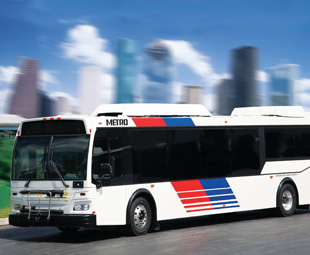Hybrids gaining ground

The first decade of the 21st century is sure to go down in history as the era of alternative vehicle technologies. Whereas the previous century had witnessed astounding progress in the optimisation of component design, most vehicles at the end of the 20th century still relied on the same fundamental combination of petroleum-fuelled internal combustion engine and mechanical transmission that had first become established practice in those early years.
Although much popular opinion would still like to see a more permanent solution in the form of hydrogen-fuelled zero-emission vehicles sooner rather than later, practical considerations surrounding the handling and distribution of liquid hydrogen have dictated that the world must pass through several interim stages before this holy grail can be attained.
Whereas private light vehicles are moving gradually into this “alternative technology” arena, there are several very good reasons why larger public service vehicles can lead the trend. Most city and suburban buses operate within well-defined geographic areas, on fixed routes and schedules. This greatly facilitates the provision of specialised fuels and maintenance, making it possible to locate technical and logistics support at a limited number of fixed points.
With this background, it is interesting to note that global technology supplier BAE Systems has already taken orders for, and partly delivered, more than 3 500 HybriDrive hybrid electric systems worldwide. BAE Systems supplies its HybriDrive system for fitment in products manufactured by Gillig, Daimler Bus North America, New Flyer Industries, Alexander Dennis and Irisbus Iveco.
The HybriDrive series hybrid package consists of a generator, electric motor and computer-controlled energy storage system employing lithium-ion batteries. The generator is powered by the bus diesel engine, and there is no mechanical transmission. All accessories, including the air-conditioning compressor, are electrically operated, which removes any need for pulleys, drive belts or hoses. BAE Systems claims its systems have travelled more than 480 million km, have prevented over 280 000 tons of CO2 emissions, and saved about 100 million litres of diesel fuel to date.
Published by
Focus on Transport
focusmagsa



